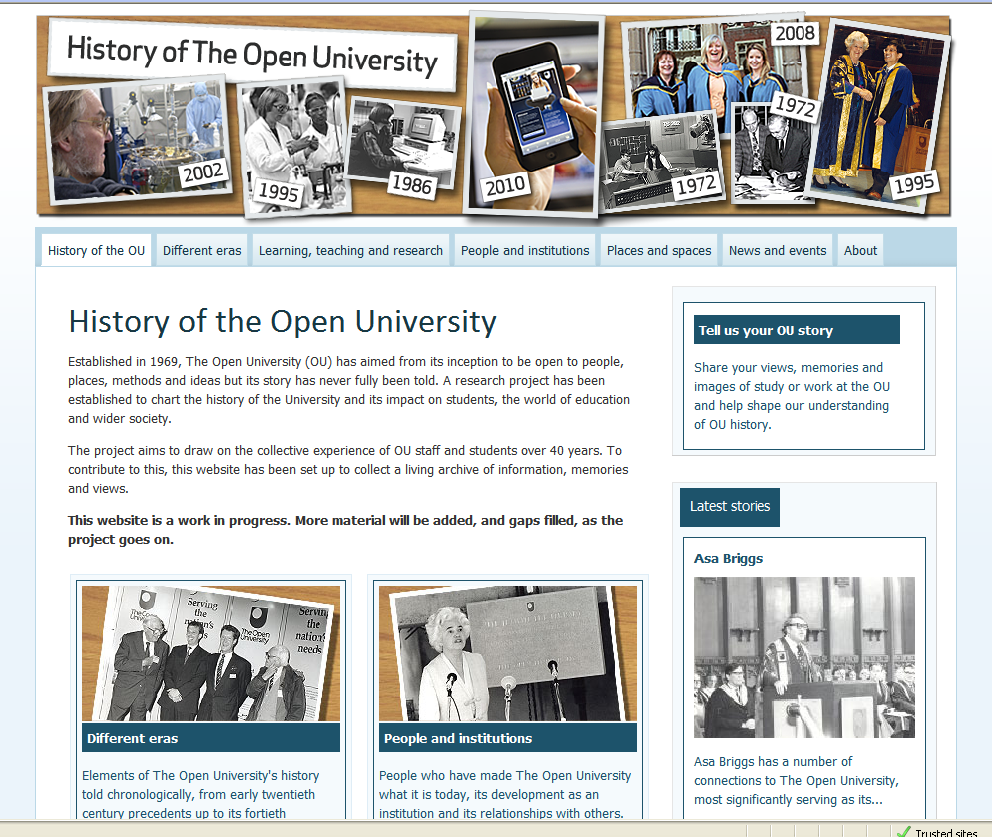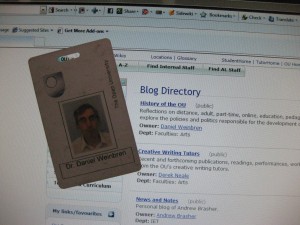The Anglo-Portuguese Treaty of 1373, ratified at the Treaty of Windsor in 1386 is one of the oldest international alliances in the world. The OU is hoping to strengthen cordial relations between the UK (the UK took over the Anglo part of the alliance) and Portugal by building up links at a conference being held in Lisbon. Representing a third of the participants who have travelled from HEFCE institutions, (London, Oxford and Cambridge are also represented here) Chris Bissell and Dan Weinbren have ensured that blended, supported distance education has not been marginalised at this international conference about the history of universities. Their interests are echoed in other contributions. One, on ‘massification’ in the Portuguese HE sector since the 1974 revolution, is chronologically comparable to the period of the early years of the OU while another, on the role of the informal sector in the construction of the discipline of history in the Netherlands, might lead to comparisons with FACHRS (see earlier posting). In addition, Dan’s paper, which assesses the uses of the market metaphor, was prefigured in both the welcomer’s address and the first keynote, which was entitled ‘The transformation of the universities: from the church to the market’.
For those unfamiliar with Lisbon there are similarities with parts of the UK. For example, the steep hills, trams and fado (a cultural form which celebrates misery) might make it easier for visitors who are homesick for Sheffield. Even those seeking Yorkshire weather will not be disappointed. It poured with rain on 18th April.





